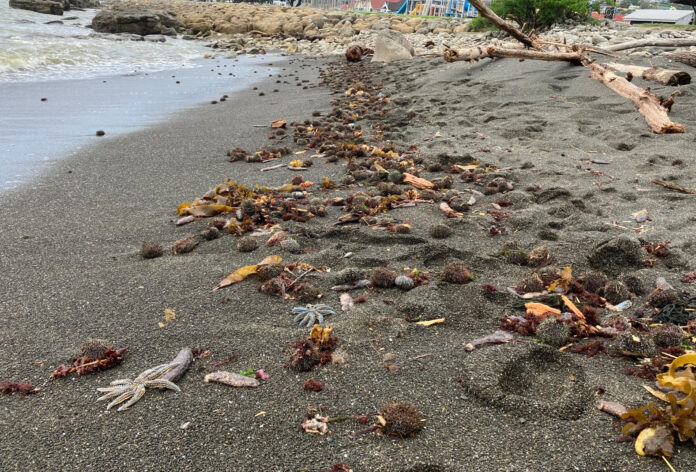Hawke’s Bay Regional Council says low dissolved oxygen levels from algal bloom may be the cause behind the deaths of sea animals which have washed ashore in Napier.
Science manager, Anna Madarasz-Smith said while it is the strongest working theory, the Regional Council was taking a wide line of enquiry to ensure no other potential causes are missed.
“As the community has observed, there has been a persistent algal bloom around Napier for the last two months. Blooms are made up of millions of tiny, microscopic algae, and if these persist, or when they start to die -off, they can use up a lot of the dissolved oxygen in the water, causing very low dissolved oxygen levels,” she said.
“We have measured dissolved oxygen saturation levels in the bottom waters of the area as low as 34%, when normal levels are between 90% and 110%. The animals washing up live on the bottom of the seafloor, so are vulnerable.”
The Regional Council is looking at a number of theories to ensure no other potential causes are missed.
Other theories the Council is investigating include freshwater drowning, sediment smothering or a toxic spill.
“We aren’t convinced that freshwater drowning is the cause because results of our testing show that the bottom waters are still relatively saline” says Ms Madarasz-Smith.

“While sediment smothering of these animals is plausible, the river discharges have been high in sediment for many months and it would be unusual for this to cause a sudden, acute and localised issue.
“Spills can also cause low dissolved oxygen levels in water, however our Compliance team have been investigating the local area with nothing unusual, and with more animals washing up around Haumoana then again a localised spill does not seem as likely.”
The Regional Council has observed dead marine animals on Hardinge Road beach, Westshore beach and on late Friday, were informed that they were on Te Awanga and Haumoana beaches.
“We are going to undertake testing of these areas.”
“We strongly urge people to not gather or consume any dead sea life washed up on the beaches,” Ms Madarasz-Smith said.



